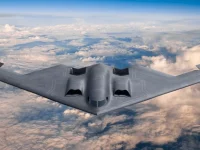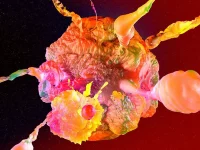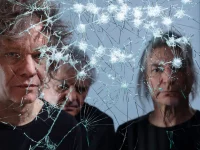New GESDA ‘radar’ identifies 216 emerging global science breakthroughs

GENEVA, Switzerland, 7 October 2021 — The Geneva Science and Diplomacy Anticipator
introduced a new global system for identifying the foremost laboratory advances over
the next quarter-century as a tool for policymaking that looks ahead to the future.
The GESDA Science Breakthrough Radar, in its first annual report and interactive digital
platform, identified 216 major science breakthroughs, based on the collective work of more
than 500 leading experts in Swiss and global scientific communities.
The Radar is a new global indicator of the most significant laboratory advances expected
within the next five, 10 and 25 years. Its purpose is to help GESDA’s communities form
concrete ideas for initiatives. Each breakthrough falls within four themes: future applications
of advanced AI and quantum computing; frontiers and limits of human resilience; ecosystem
regeneration and geoengineering; and new uses of science diplomacy itself.
Developed in partnership with the Fondation pour Genève, the Radar was introduced at the
GESDA Foundation’s first annual summit in Geneva. It also benefited from collaboration with
open science publisher Frontiers. Both the Radar and summit are among GESDA’s biggest
accomplishments since its founding by the Swiss and Geneva governments two years ago.
The summit agenda covers 16 topics based on the Radar that could significantly boost the
UN’s 17 Sustainable Development Goals for 2030. The goal is to unlock new solutions for
helping people around the world, particularly those that are the most in need. GESDA also is
launching a Digital Sounding Board to help take the pulse of citizens and NGOs worldwide.
Transforming new advances into actions also fulfils Geneva’s promise and tradition as a hub
of global governance and center for multilateralism in science diplomacy. Geneva hosts the
UN’s European headquarters and other international organizations and academic
institutions. Second editions of the Radar and the Geneva summit are planned for 2022.
“The basic idea is that we are presenting the outcome of the work of more than 500 scientists
from all over the world,” said GESDA Board Chairman Peter Brabeck-Letmathe. “It gives you a
picture of what’s really happening in the top science laboratories. From there, if we want to
anticipate, we need to examine what’s going to happen based on those breakthroughs. The
Radar will show you, in a very accessible form, what is happening out there, and what could
be, or will be, on a five-year, 10-year and 25-year horizon.”











